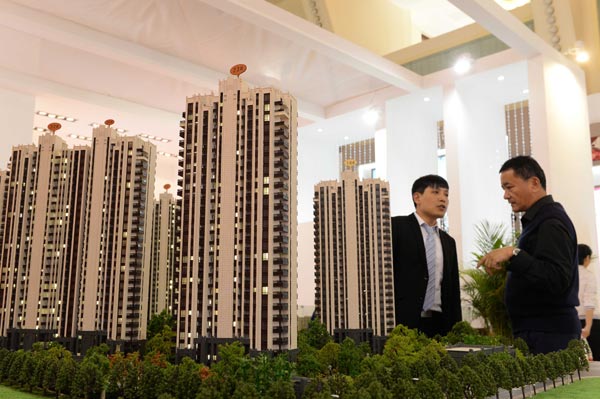
Various local governments are planning to lift restrictions previously imposed on the purchase of properties. But, though the move will provide a much-needed boost to the market, it is hard to improve the fundamentals of the sector.
The property market has become bearish since early this year and, in June, the average prices of 100 major Chinese cities dropped by 0.5 percent month-on-month, the second consecutive month of falling prices, according to the China Index Academy.
The downturn has led to panic among both developers and local governments, as the latter are heavily dependent on revenue related to property development and sales.
The local government intervention in the market shows that the situation has become quite severe for the real estate market. But will the move really bail out the developers?
China’s home prices have been rising at a fast pace in the past decade, thus forcing the central government to devise restrictive policies aimed to slow down the rising momentum. Measures to rein in the overheating housing market include higher mortgage rates and limits on how many homes each family can buy.
Similar measures were often implemented in the past, but they failed to stop price rises in the last ten years — until recently.
For one thing, home prices have risen to a level that is unaffordable for many ordinary families – and demand has declined as prices rise.
Additionally, the overall macroeconomic situation is not favorable for the developers. The slowing Chinese economy, coupled with tight credit, has strained the real estate market, making some developers cut prices as stop-gap measures, which in turn has made potential buyers even more hesitant to make decisions.
But, even without these restrictive policies in place, it is difficult for the developers to sell their properties at the current price. The prices of some projects in major cities, such as Beijing and Shanghai, have increased by about ten times in the past decade – and there has not been much room for another surge in sales.
Also, the slowing economy and the widespread expectation for a new “economic normal” of sustained slow growth have constituted the biggest hurdle for property sales. Unlike some years ago, when people often talked about how much more the prices of their properties would continue to rise, people are now discussing whether the market downturn would spell an Armageddon that will trigger a full-blown economic crisis in China.